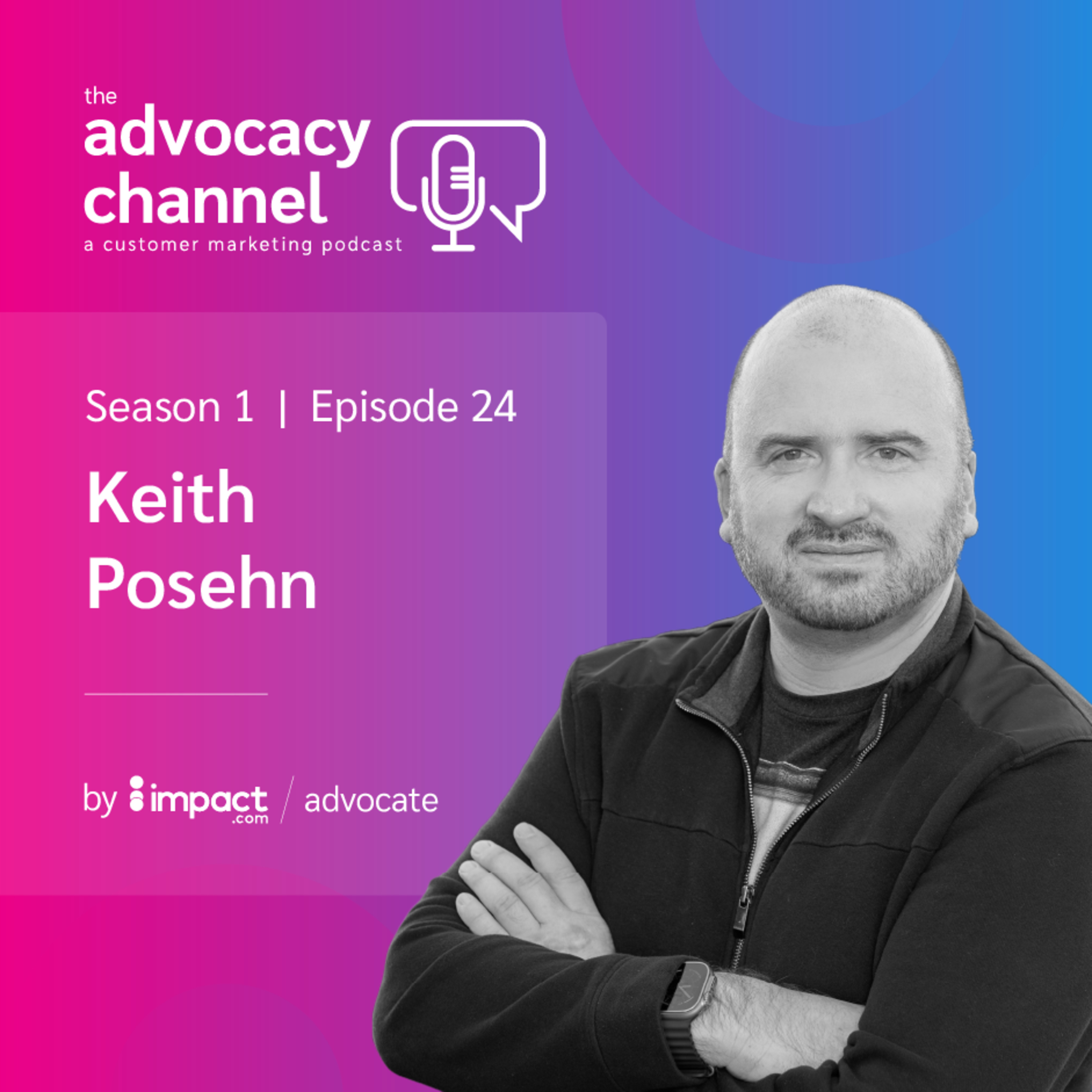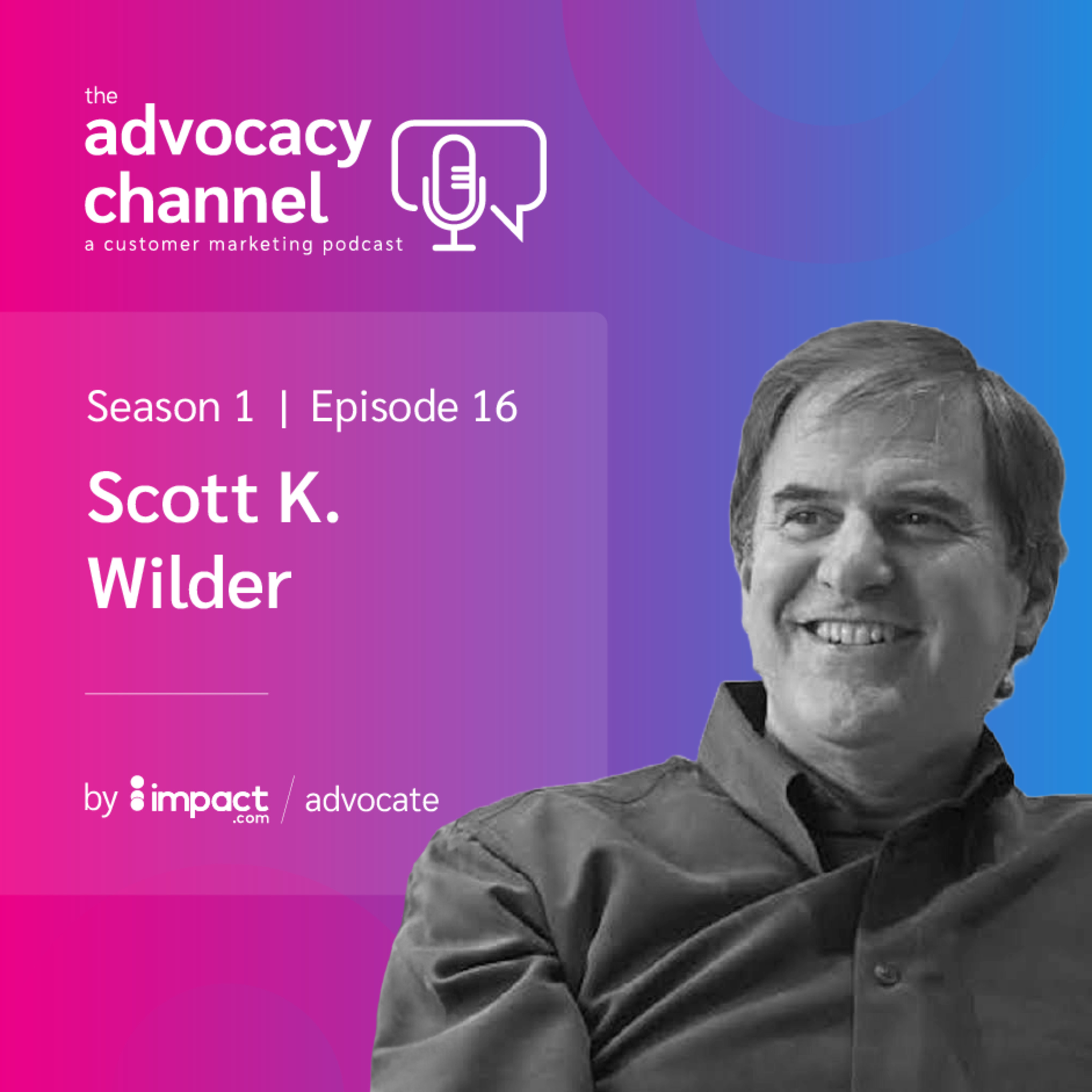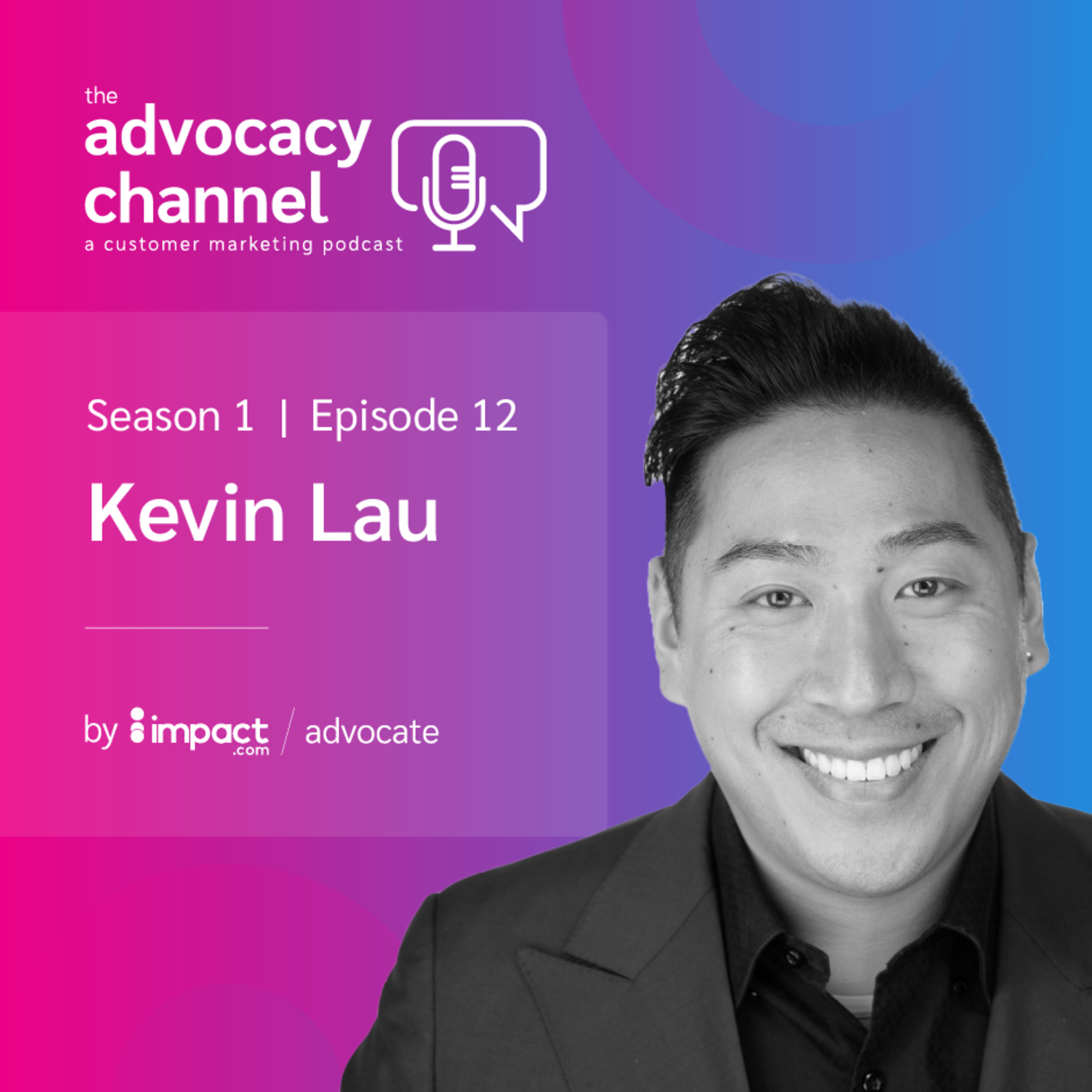Episode Transcript
Producer: Hi and welcome to season two of the Advocacy Channel, a customer marketing podcast brought to you by impact.com. For the first episode of our new season, our host Will Fraser welcomes Doug Lewis, an experienced marketing leader who's worked with companies like Trusted Health, Hired and Decathlon.
Will: Doug, thank you so much for joining us here today. I am really excited to get into this conversation.
Doug: Yeah, likewise. Excited to chat with you.
Will: We had a chance to chat before and you have a very nonlinear path to where you've been today. A very interesting background. Could you help walk our listeners through your background?
Doug: Sure. I studied marketing at Florida State. After graduating, I wasn't ready for a desk job yet so I moved abroad and taught English in China for a year. While there, I got a job in marketing with an education consulting firm. That's where I started touching different areas of marketing - budgets, paid acquisition, events - and really gravitated towards digital marketing.
Doug: After a year there, I moved back to the States and got a job in Walnut Creek working for a design company focused on digital marketing and advertising. Then I moved to Hired, a tech labor marketplace, where I worked as a manager focused on advertising and took on other areas of acquisition marketing like SEO and referrals. My manager there went on to start Trusted Health and brought me on as their first head of growth and marketing. That's where I expanded into lifecycle, retention, community and brand. Later I moved to Decathlon as head of growth, and then one of the Trusted Health co-founders brought me to Feeling Great, where I am now.
Will: Is there anything you wish you knew at the start? Or was the experience just the right way of learning it?
Doug: I've been very fortunate to have great managers. My first manager at Why Design Group in Walnut Creek spent time teaching me digital marketing tactics and best practices. One piece of advice they gave me was that just because something has been done a certain way doesn't mean it's necessarily right going forward. That mentality helped me broaden my thinking and challenge the status quo.
Will: That's good advice. Digital marketing changes rapidly and it's dangerous to keep repeating old playbooks.
Doug: Exactly.
Will: What drew you to growth and referral marketing specifically? There are many paths in digital marketing.
Doug: A couple things attracted me. I never considered myself very analytical, so digital marketing's data aspect intimidated me at first - which made me want to dig into it more. Also, the quick feedback loop was appealing. You can see direct impact through data and iterate quickly. That ability to measure impact and improve was really fun and addicting.
Will: As a startup founder, I can tell you having an impact is very addicting. Switching gears to referral programs - what's the right timing for a company to look at implementing one?
Doug: I hesitate to say it's never too early, but you want to make sure you have some product market fit first with initial excited customers. Once you have those core users, I'm an advocate of starting as early as possible, even if rudimentary. These early customers are your biggest proponents who've taken a chance on you, and their friends likely have similar profiles. It's easier to reach those high intent users than through paid advertising.
Will: I want to double click on "rudimentary." Are we talking spreadsheets and emails or full automation? What's a reasonable starting point?
Doug: It could start with Google sheets and forms - having people input names and emails through a form on your website, using Zapier to send entries to a spreadsheet, then reaching out via email. Or it could be bringing on a lightweight tool that connects users and lets them share links or SMS invites. The incentives don't need to be astronomical at the start when you're testing traction. It can be as simple as asking if they know others who'd enjoy the product and handling the rest.
Will: At its core, a referral is just someone letting others know about the product. It could start with email campaigns or CSM conversations for B2B platforms - just asking if they know others who'd benefit. You mentioned incentives though - how do you determine the right incentive and what have you tried?
Doug: My philosophy is ensuring the incentive matters to the audience and relates to your business. At Trusted Health, our travel nurse marketplace, pay was a key factor in choosing agencies. So our referral bonus focused on financial incentives for referring nurses. We made it compelling enough to overcome the social friction of recommending a tool.
Doug: At Hired, the tech labor marketplace, we took a different approach. We had some financial incentive, but saw more traction incorporating referrals at "aha moments" when people understood our value. When someone found a job through us, we'd send a swag box with Dom Perignon to create that feeling of status and excitement. We'd incorporate the referral opportunity then. Both examples show tailoring the referral experience to what matters to customers and helps overcome social friction.
Will: I love tying it to aha moments. Getting that dopamine hit when you've made a purchase or got a job, and making referral easy then - brilliant strategy that many miss. They just put links in footers or send monthly emails without considering timing. Going back to nurse incentives - how do you determine the amount? Did you do testing there?
Doug: Getting to a good referral program starts with maybe not having the best. We had initial traction but saw growth decline. We tried reminder emails about earning money through referrals, but saw limited uptick. We started experimenting with seasonality - when nurses look for jobs. In summer, everyone wants to work in Hawaii, so we'd use that angle and say "It's no fun going to Hawaii alone - refer your friends to work together."
Will: I love connecting referral messaging to how people actually use the product. It seems obvious in retrospect but wasn't at first - recognizing the social element of travel and leaning into that. Some companies say "give a friend a free ride" or focus on partners/spouses. Understanding when people refer and giving them the right language is key.
Doug: Exactly. Especially in that industry where people travel solo or with a partner but don't know others at work. Being able to bring friends along or help them find jobs tied into what customers wanted.
Will: Now we need to make customers aware of these programs. Beyond email, where did you find it effective to integrate programs? What approaches worked or didn't work?
Doug: My philosophy is that referral programs shouldn't require hunting but also shouldn't be annoying. We kept it visible throughout the dashboard, more prominent in some places than others. New users got welcome emails with their unique referral link. A huge unlock for us was understanding our audience - travel nurses weren't discussing jobs at work since they're usually alone. We found Facebook groups were key, with hundreds of thousands of nurses asking about agencies. Our nurses could share their referral links when people asked for recommendations, which worked since it was genuine advice rather than solicitation.
Will: It's mind-blowing there are hundreds of thousands of travel nurses. I love that you made it accessible and let them find natural places to make honest referrals. Having it in dashboards is baseline, but integrating it into onboarding and matching how they actually use and discuss the service is great. It's the opposite of the "fire and forget" approach of just putting a link in the footer.
Doug: Exactly.
Will: You've worked on several referral programs and are onto your next adventure. What do you think is the future of referral programs? We've been referring since commerce began, but where's it heading?
Doug: I think ease of referability is key - reducing the burden. With platforms like TikTok, making referrals easier is the focus. I realized this watching a friend share something on TikTok with one button versus my copying and pasting links. Referrals have been around forever and most companies have programs, so standing out requires making the value 10x the friction of referring, whether through financial incentives or premium rewards like Dom Perignon.
Will: The friction tolerance bar keeps dropping. I've seen bank referral programs requiring printed forms - they've already lost. Having a printer is increasingly rare. Many companies have referral programs that have languished because they're not investing and testing like you describe. It works, but it's not without work.
Doug: Yeah, it gets stale and quarterly emails won't take you to the next level - you'll see diminishing returns. You need to challenge the status quo, understand what your audience cares about, and keep building on that. Make the value not just 10x but 11x better and more aligned with their concerns and desires.
Will: Love that - not settling for 10x, pushing for 11x. What's one key takeaway for someone looking to start or reinvigorate their referral program?
Doug: I go back to the why - why would someone talk about you to their friend? Is it financial incentive, social status, or improved experience? Understanding your customer and continually challenging that understanding is key. Maybe start basic with $5 off, but dig deeper into what they care about - whether it's bigger discounts for more referrals or targeting specific purchasing behaviors.
Will: Great advice. If it's not working, you can't just say referrals don't work - talk to your customers. Understanding if it's about status, incentives, or being better together will point you in the right direction.
Doug: 100%. Couldn't agree more.
Will: Tell us about your consulting work these days.
Doug: I work with smaller companies, from bootstrap to Series C, helping identify acquisition channels and develop growth models across paid, organic, referral, lifecycle and retention. Those have been my focus areas.
Will: Where can listeners find you?
Doug: I'm active on LinkedIn as Doug Lewis - happy to connect and message there. Also happy to grab coffee if anyone's in San Diego area. Those are the best ways to reach me.
Will: Thank you so much for your time today. It's been a wonderful conversation and I've learned some great things.
Doug: Awesome. Appreciate the chat.
Producer: Thanks for tuning in to the season two premiere of the Advocacy Channel, brought to you by impact.com. Join us next time for more expert insights. Please rate, review and subscribe wherever you listen to podcasts.


